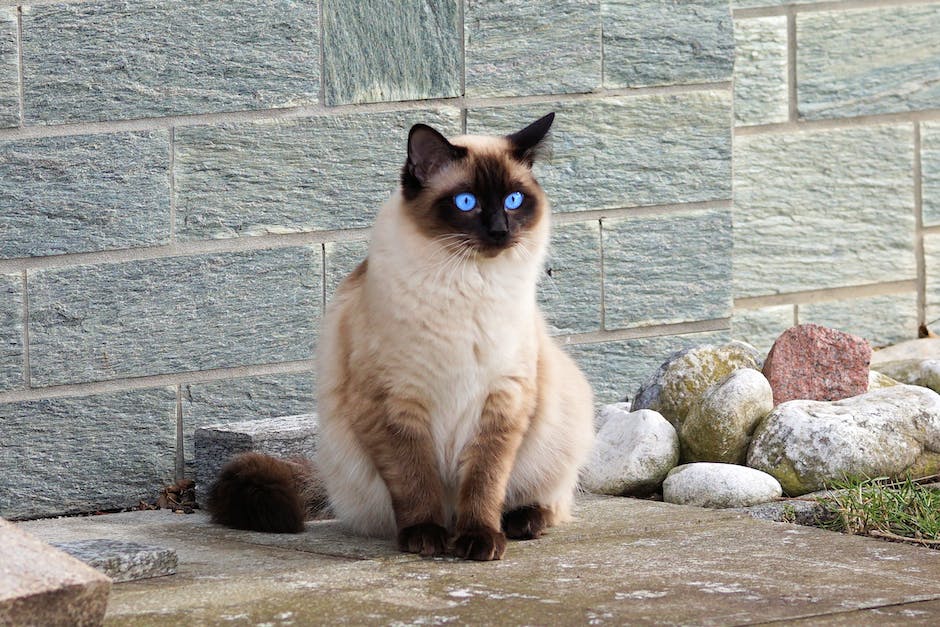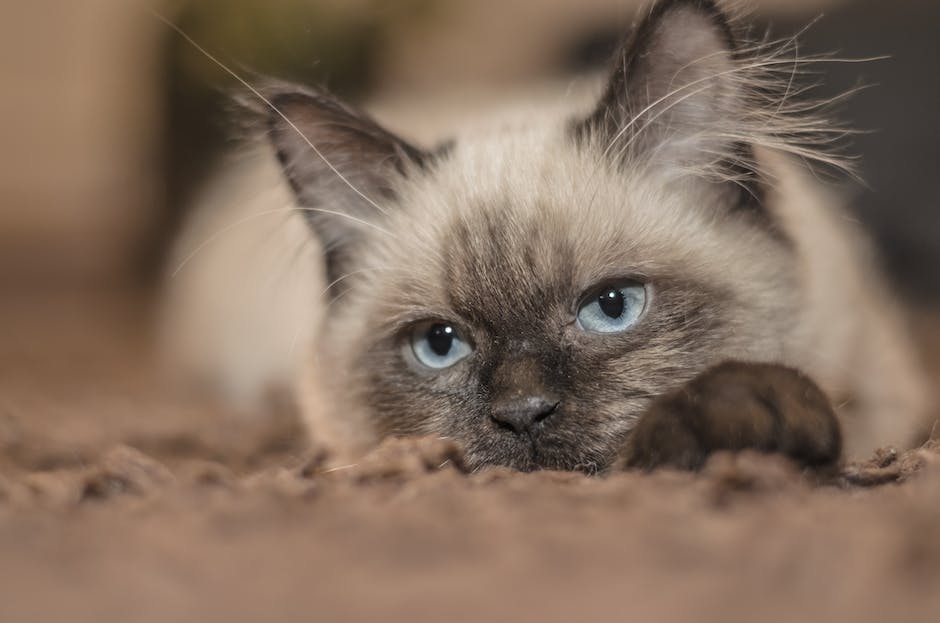Bringing a new cat into your home is an exciting experience, but have you ever considered adopting an older Siamese cat over a kitten? There are several benefits to welcoming a senior Siamese cat into your home.
Firstly, older Siamese cats are typically more calm and laid-back than their younger counterparts. They may not have as much energy as kittens, but they still enjoy playing and cuddling with their owners. This makes older Siamese cats the perfect choice for those who are looking for a feline companion that is more low-maintenance.
Another benefit of adopting an older Siamese cat is that they are often already trained and well-behaved. Older cats typically have better litter box habits and are generally less destructive than kittens. Additionally, senior Siamese cats tend to be more independent and enjoy spending time alone, which can be helpful for those who work long hours.
Adopting an older Siamese cat also has the added benefit of giving them a second chance at finding a loving home. Many senior cats end up in shelters or rescue organizations due to changes in their owner’s life, such as a move or illness. By adopting an older Siamese cat, you are not only gaining a faithful companion but also providing a loving home for a cat in need.

Understanding Siamese Cat Behavior and Temperament
Before adopting any pet, it is crucial to understand their behavior and temperament. Siamese cats are known for their vocal and opinionated personalities. They are intelligent, curious, and playful, but they can also be demanding and stubborn.
Siamese cats are highly social animals that crave attention, both from their owners and other pets. They can become particularly attached to one owner and may follow them around the house or even sleep in their lap. Due to their high energy level, they need regular exercise and mental stimulation to stay healthy and happy.
Additionally, Siamese cats are known for their loud and unique vocalizations, which can range from loud meowing to grumbling. They use their voice to communicate with their owners, often making it clear what they want or need.
Another aspect of Siamese cat behavior is their tendency to be territorial. They may become aggressive towards other cats or pets in the household, particularly if they feel threatened or stressed. This is why it is essential to introduce a new Siamese cat gradually and with caution.
Preparing Your Home for Your New Siamese Cat
Before bringing a new cat into your home, it is essential to make sure that your house is safe and secure for them. Firstly, make sure that all household cleaners, chemicals, and toxic plants are stored out of reach of your new cat. Siamese cats are curious animals, and they may ingest harmful substances if given the chance.
Additionally, make sure that your new cat has plenty of hiding spaces and elevated perches to explore and rest. Cats feel more secure when they have a place to retreat to when feeling stressed or anxious.
Moreover, it is essential to provide your new Siamese cat with a litter box, food, and water dishes, and suitable toys. Siamese cats have a reputation for being finicky eaters, so it may take some trial and error to find a food your cat enjoys. Choose a litter box that is easy for your cat to access and clean regularly to prevent odor buildup.
Finally, consider purchasing a scratching post or pad for your new Siamese cat to help keep their claws healthy and avoid furniture damage. Proper preparation and planning can help ensure a smooth transition for your new Siamese cat into their new home.
Introducing Your Siamese Cat to Other Pets
If you have other pets in your home, introducing your new Siamese cat to them can be a delicate and gradual process. Introducing cats can be challenging because they are territorial animals, and the presence of another pet in their home can cause stress and anxiety.
To make the introduction process smoother, start by keeping your new Siamese cat in a separate room for a few days to allow them to adjust to their new surroundings. This room should contain all the essentials, such as food, water, litter box, and a comfortable bed.
When you are ready to introduce your Siamese cat to the other pets, do so gradually. Start by allowing them to sniff each other through a crack in the door. Once they seem comfortable with each other’s presence, you can gradually let them spend more time together under supervision.
It is crucial to monitor their interactions and intervene if necessary. Praise and reward your pets for good behavior and provide plenty of safe spaces and hiding places if things become too overwhelming. With patience and proper introduction, your Siamese cat can live harmoniously with their new furry siblings.
Coping with Health Issues in Older Siamese Cats
Like any pet, Siamese cats may experience health problems as they age. Common health issues in senior Siamese cats include dental problems, joint pain, kidney disease, and hyperthyroidism. It is essential to be aware of the signs and symptoms of these issues to ensure early detection and proper management.
To keep your older Siamese cat healthy, implement a routine preventive health care regimen with regular vet visits, a balanced diet, and proper exercise. Senior cats may require senior-specific food or lower calorie diets to maintain a healthy weight.
Regular dental care, such as brushing your cat’s teeth or providing dental treats, can also help prevent dental problems that are common in older cats.
If your Siamese cat begins showing signs of joint pain or stiffness, consult with your veterinarian for possible supplements or medication, such as glucosamine or pain relief medications. In some cases, physical therapy or acupuncture can be beneficial for joint pain in aging cats.
Building a Bond with Your Senior Siamese Cat
One of the most rewarding experiences of owning a Siamese cat is building a strong bond with them. Siamese cats are intelligent and affectionate animals that crave attention and love from their owners. Building a strong bond with your senior Siamese cat can take time and patience, but it is well worth the effort.
To build a bond with your Siamese cat, begin by establishing a routine of feeding, playing, and cuddling with them. Engage in playtime activities, such as chase games or hide-and-seek, to stimulate their minds and keep them active.
Additionally, try to spend some quiet time each day with your senior Siamese cat to connect with them on a deeper level. Brush their fur, talk to them in a soft and soothing voice, or simply sit together and enjoy each other’s company.
It is also essential to provide your senior Siamese cat with plenty of enrichment activities, such as puzzle toys or scratching posts, to prevent boredom and promote good mental health. With patience, love, and attention, you can build a strong and loyal bond with your senior Siamese cat.

Providing Proper Nutrition and Exercise for Older Siamese Cats
Proper nutrition and exercise are crucial to keeping your Siamese cat healthy as they age. Senior Siamese cats may have different dietary needs than younger cats and may require special attention to their exercise routine.
As Siamese cats age, they may become less active and could be more prone to weight gain. It is important to provide them with a well-balanced diet that is higher in protein and lower in calories. Senior-specific cat foods are formulated with these needs in mind and can be beneficial to your cat’s health.
Additionally, it is important to encourage exercise in your senior Siamese cat. This can be achieved by providing them with climbing structures, scratching posts, and interactive toys that promote movement and play.
Consulting with your veterinarian about nutrition and exercise plans can ensure that you are providing your senior Siamese cat with a well-rounded diet and an exercise routine that is tailored to their needs.
Creating a Safe and Comfortable Environment for Your Aging Siamese Cat
As your Siamese cat ages, they may need a safe and comfortable environment that accommodates any health issues they may face. This can include things like mobility issues or arthritis, decreased vision or hearing, and urinary tract issues.
To provide the ideal environment for your aging Siamese cat, consider making a few modifications around your home. Providing lower litter boxes or ones with ramps can make it easier for cats with mobility issues. Adding extra litter boxes in different locations can also make it more convenient for your cat to use the bathroom.
Pay attention to surfaces that can become slippery, such as tile or hardwood floors, as they can be dangerous for a senior Siamese cat. Non-slip mats or rugs can be added to these surfaces, creating better traction for your aging pet.
Furthermore, paying attention to their sleeping arrangements is also important. Providing a comfortable bed that is easily accessible and close to a heat source can help keep your senior Siamese cat warm and comfortable.
By creating a safe and comfortable environment tailored to your aging Siamese cat’s needs, you can ensure that they can continue to live a long and healthy life in the comfort of their own home.

